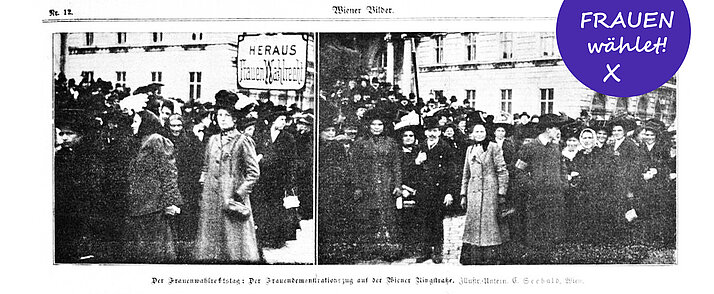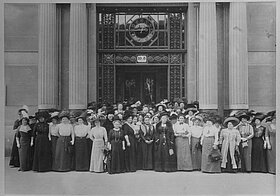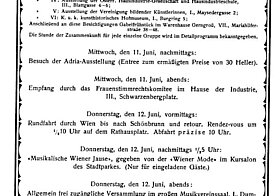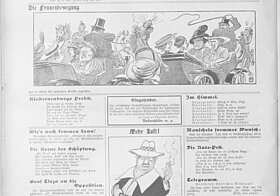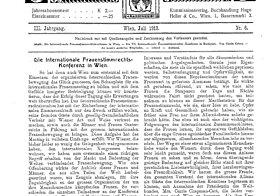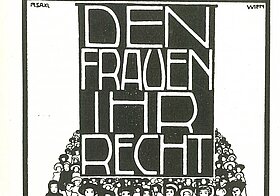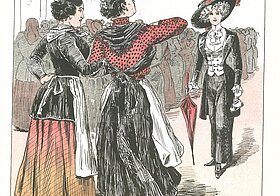Annual maintenance work will take place again this summer, which is why the reading rooms at the Heldenplatz location and in all collections will be closed from Friday, July 25, to Tuesday, August 5, 2025.
Due to the shutdown of the ordering system, no media orders can be accepted from Thursday, July 24, 2025, 4 p.m. to Tuesday, August 5, 2025, 4 p.m. The regular opening hours will then apply again from Wednesday, August 6, 2025.
The study room of the Albertina is closed from July 15 to August 15. During this time (except July 25 to August 5), media ordered from the Albertina collection will be transported twice a week (Monday and Thursday) to the reading rooms of the National Library on Heldenplatz and can be used there.
Starting August 1, 2025, the State Hall will open at 9 a.m.
Due to an event, the State Hall will be closed on August 4, 2025.
After universal and equal men's suffrage was introduced, the social-democratic women’s movement focussed its activities on women’s suffrage. Social democratic women campaigned at the mass demonstrations of May 1st and from 1911 on at the annual Women’s Day. At the Second International Conference of Socialist Women in Copenhagen in 1910, the decision to hold an annual International Women’s Day to fight for women’s suffrage was made. The first one was held in Vienna in 1911, with a protest march on the Ringstraße – according to the newspaper “Arbeiter-Zeitung” around 20.000 women – but men too – taking part.
The liberal women’s suffrage movement increasingly considered itself part of an international movement - with contacts to the International Woman Suffrage Alliance, founded in 1904. In 1913 the opportunity for the Austrians to make their mark in the international women’s movement came, when an international women’s suffrage conference was held in Vienna on June 11st and 12th. During the conference a demonstration a "round trip" was arranged: “Over 120 automobiles and carriages, adorned with yellow flags and the slogan ‘Votes for Women’, were on the road.”
The political upheaval because of the end of the monarchy, the First World War and the emergence of the Republic finally created new conditions for women.

